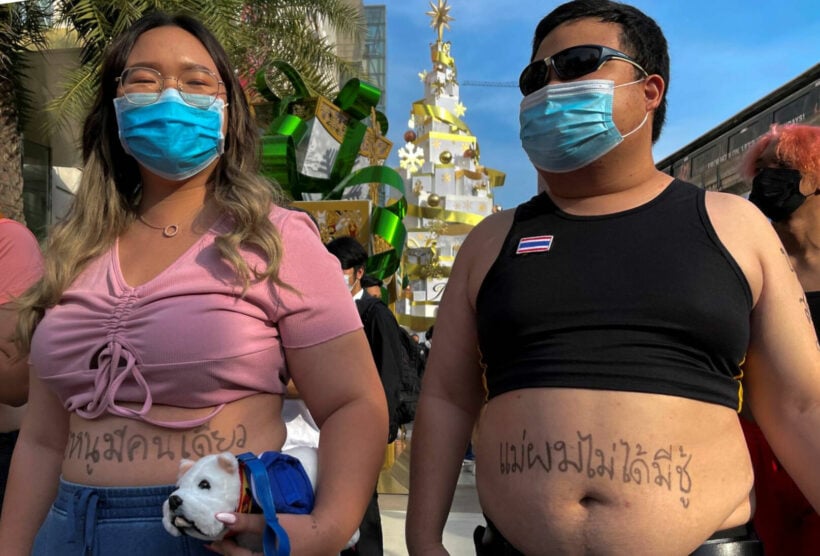Health declining for jailed protestors on hunger strike

Continuing their hunger strike, 2 leaders in the pro-democracy demonstrations that were jailed for speaking out against the king’s power are experiencing declining health. Parit “Penguin” Chiwarak and Panusaya “Rung” Sithijirawattanakul stopped eating over the last few weeks in protest against the denial of bail as they sit in jail waiting to be tried using Thailand’s harsh lese majeste laws in which criticizing the monarchy carries a strict penalty. The two Thammasat University students have been active in the protests over the last year especially pushing the radical agenda of limiting the powers of Thailand’s royals.
For many years previously, demonstrations like this were unthinkable in the Kingdom where the royal family is beyond reproach and speaking out against them can carry a 15-year prison sentence. But over the last year Thailand has seen an astonishing evolution as young and increasingly political people, many among them still students, are emboldened to speak more loudly and more forcefully against the government that came to power in a coup 7 years ago and the royal family that until now was considered untouchable.
In jail since February, Penguin started his hunger strike on March 15 and isn’t consuming anything but liquids. His cousin said Penguin was never a very healthy person and witnesses say he is visibly thinner and losing power, struggling to stand on his own. His lawyers are asking the courts to allow bail before the hunger strike leads to his death. The prison has put him on a saline drip now. Rung started her hunger strike several weeks later on April 5 and is in better condition than Penguin but still suffering the effects of food deprivation.
The Department of Corrections say they are closely monitoring the pair’s blood pressure, temperature, hydration, and general health. They’re reported to be under 24-hour CCTV surveillance and advanced arrangements have been worked out for an emergency hospital run if necessary.
Thai Lawyers for Human Rights have been active in advising protesters and say that the government is holding at least 17 people for their protesting and political activism in an attempt to crack down on the growing protest movement. They have advocated for the release of these leaders citing not only the effects of the hunger strike but concern about the possibility of Covid-19 infections sweeping through Bangkok Remand Prison, where the students are detained, as it has with other jail outbreaks recently.
Penguin continues his hunger strike in hopes that the world will take notice of the plight in Thailand and the suffering at the hands of the country’s leaders.
The two have been charged using the lese majeste laws and also with sedition and other protests related crimes in September. They took part in the largest demonstration of last year where pro-democracy activists presented a plaque in front of the Grand Palace saying that Thailand belongs “to the people, not the king, as they deceived us”.
In recent months the protests have weakened, in part due to fears over the spread of Covid-19, but also because of increased force from the police who began deploying blockades, tear gas, and water cannons to drive away demonstrators. In February protester Anchan Preelert was sentenced to 43 years in jail, indicating the government’s new willingness to use these powerful lese majeste laws they had avoided in the past.
SOURCE: Financial Times
Latest Thailand News
Follow The Thaiger on Google News:


























